FIRST INTERNATIONAL CONFERENCE - Psychology of Sustainability and Sustanaible Development
First International Conference:
Psychology of Sustainability and
Sustanaible Development
University of Florence, August 26-27, 2020



| PRESIDENTS OF THE CONFERENCE | |
 |
Annamaria Di FabioAnnamaria Di Fabio, Ph.D. is Full professor of Work and Organizational Psychology at the Department of Education, Languages, Intercultures, Literatures and Psychology (Psychology Section) of the University of Florence (Italy). She is also Director of both the following International Research and Intervention Laboratories: Cross-Cultural Positive Psychology, Prevention, and Sustainability; Work and Organizational Psychology for Vocational Guidance, Career Counseling, Talents and Healthy Organizations. Her principal research areas are focused on work and organizational psychology, decent work/decent lives, psychology of harmonization, emotional intelligence, psychology of individual differences, positive preventive psychology in a primary and cross-cultural perspective, also promoting the new area of the psychology of sustainability and sustainable development. She is author of more than 200 peer reviewed articles and books/book chapters and responsible for many editorial book series and scientific journals. She was invited in many international scientific conferences both as keynote speaker and as chair and discussant. She has international agreements and collaborations for research activities with many universities and institutions all over the world (USA, Canada, Australia, New Zealand, South Africa, Japan, Malaysia, South Korea, Indonesia, China, Vietnam, Bangladesh, India, and Europe). She organized several International Conferences at the University of Florence (Italy) on many different topics, particularly committed to advancing a cross-cultural perspective for healthier societies fostering healthy organizations, psychology of sustainability and sustainable development, decent work and decent lives in strength-based prevention perspectives. |
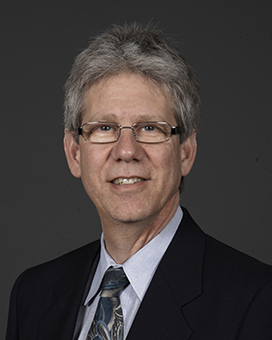 |
Marc A. RosenMarc A. Rosen, Ph.D., is a Professor at University of Ontario Institute of Technology in Oshawa, Canada, where he served as founding Dean of the Faculty of Engineering and Applied Science. Dr. Rosen has served as President of the Engineering Institute of Canada and of the Canadian Society for Mechanical Engineering. He has acted in many professional capacities, including Editor-in-Chief of various journals and a Director of Oshawa Power and Utilities Corporation. With over 70 research grants and contracts and 900 technical publications, Dr. Rosen is an active teacher and researcher in sustainable energy, sustainability, and environmental impact. Much of his research has been carried out for industry. Dr. Rosen has worked for such organizations as Imatra Power Company in Finland, Argonne National Laboratory near Chicago, the Institute for Hydrogen Systems near Toronto, and Ryerson University in Toronto, where he served as Chair the Department of Mechanical, Aerospace and Industrial Engineering. Dr. Rosen has received numerous awards and honours, and is a Fellow of numerous societies. |
| CO-PRESIDENTS OF THE CONFERENCE AND INVITED KEYNOTE SPEAKERS |
|
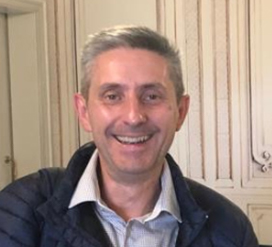 |
Jean-Luc BernaudJean-Luc Bernaud is Professor of Counseling Psychology and Vocational Guidance at the CNAM-INETOP (National Institute of Work Study and Vocational Guidance, Paris). He was Visiting Professor and has initiated collaborations with Germany, Belgium, Canada, Cameroun, Danemark, India, Italy, Moldova, Switzerland, and Togo. He is also associate editor of the international review "Psychologie du Travail et des Organisations" and president of the French Association of Existential Psychology. His research focuses on the effects of methods and processes in career counseling, life meaning and work meaning, existential psychology in the workplace. He has published 149 articles, books, and chapters on these topics. |
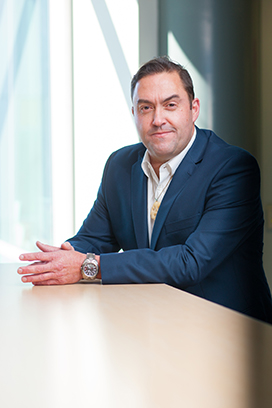 |
Jarrod HaarDr Jarrod Haar (PhD), Ngati Maniapoto/Ngati Mahuta descent, is a Professor of Human Resource Management at AUT. His research focuses on (1) work-family and work-life balance, (2) Māori employees and Mātauranga Māori, (3) leadership, (4) wellbeing, and (5) R&D, entrepreneurship, and innovation. Professor Haar is ranked world-class (PBRF); won Industry and best-paper awards; research grants (Marsden, FRST); and currently researchers on a National Science Challenge (Science for Technological Innovation), a Marsden grant (Living Wage), and a Ngā Pae o te Māramatanga grant (Māori HRM). He has over 380 refereed outputs (including 97 journal articles) and convenes the Economics and Human Behaviour Marsden panel. |
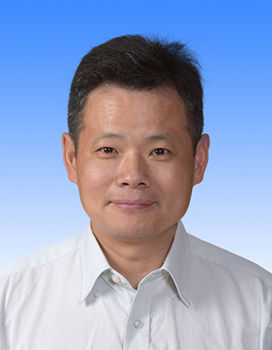 |
Buxin HanBuxin Han is professor of psychology at the Institute of Psychology, Chinese Academy of Sciences (IPCAS), Beijing, China. He received his doctorate in Psychology (IPCAS, 1993), research on the psychology of ageing, cultural psychology of religion, and color perception. He has published over 200 scientific articles in journals in either English or Chinese, and is on the editorial boards of several Chinese Journals. He was elected as a member of the Board of Directors (BoD, 2006-2014) and Secretary-General (S-G, 2014-2018) of the International Association of Applied Psychology (IAAP), BoD member (2005-2019), President-Elect (2019-2022) of and IAAP liaison (2006-2018) to the APsyA. He was appointed as IAAP liaison to and worked very hard to the great success of the 1st South East Asian Regional Conference of Psychology (RCP2107, November 28- December 1, Hanoi). His contributions for these important events were highly recognized and hence he received the Distinguished Award issued by the International Union of Psychological Science (2004), China Associations of Science and Technology (CAST, 2006), and the IAAP (2018). He is active in Chinese and International academic organizations. He has organized annual Sino-American Bilateral Conference on Cultural psychology of Religion since 2007; chairing the annual International Workshop for Young Psychologists in Frontiers of Psychology, which was supported by the CAS, since 2018. |
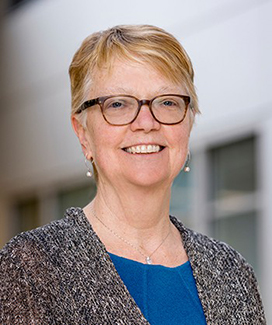
|
Mauree E. KennyMaureen E. Kenny, PhD, is interested in enhancing ways to cultivate academic, career and socioemotional development among children, adolescents, and families. She seeks these answers by examining the individual and contextual factors that promote positive growth and studying how to prepare individuals and systems to adaptively manage shifts in technology, globalization, and workforce opportunities. Her expertise includes the design and evaluation of school and community-based interventions, with a focus on marginalized youth and the promotion of student motivation, career adaptability and well-being. She joined the Lynch School in 1988. She served as Dean from 2013–2016, as Interim Dean from 2011–2013, as Associate Dean of Faculty and Academic Affairs from 2007–2011, and as chair of the CDEP department from 1997–2000. An author of dozens of publications, she has delivered more than 100 presentations at national and international conferences. She served on the editorial boards of the Journal of Counseling Psychology and the new American Psychological Association journal, the Journal of Health Promotion and Prevention. In 2009, she received the Lifetime Achievement Award in Prevention from the American Psychological Association’s Society for Counseling Psychology. |
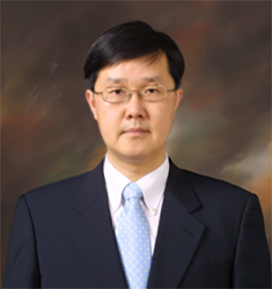 |
Uichol KimUichol Kim, Ph.D., Professor, College of Business Administration, Inha University, Korea. He has previously taught at the Department of Psychology, Chung-Ang University, University of Tokyo, Japan and University of Hawaii at Manoa, USA. He was a visiting professor at Stanford University, University, Xiamen University, China, University of Konstanz, Germany and University of Bergen, Norway. He has conducted research in indigenous and cultural psychology, focusing on family and parent-child relationship, education attainment and school violence, health and quality of life, democracy, and human rights and political culture. In management, his research focuses on leadership, organizational culture and sustainability, focusing on creativity, innovation and entrepreneurship. He has published over 200 articles and 20 books and provided lecture/consulting for companies/governmental agencies headquartered in the USA (Pfizer, Stryker Corporation; Department of Health, State of Hawaii), Canada (Canadian International Development Agency), France (La Poste, MAPI Institute), Germany (BASF), Thailand (PTT), Japan (Toyota Home), Indonesia (Ciputra Group) and Korea (LG Group, Samsung Life Insurance, Halla Group and Dongsung Corporation). |
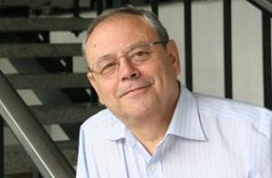
|
José Maria PeiróPhD University of Valencia, 1977. Professor of Work and Organizational Psychology and Researcher of the Institute of Human Resources Psychology (IDOCAL) at the University of Valencia and also of the Ivie (Valencian Research Institute of Economics) Member of the Spanish Academy of Psychology. His research focuses mainly on occupational stress and wellbeing at the individual and collective levels. He also studies team and organizational climate and culture and work socialization processes as well as youth labor market entry, unemployment, employability and over qualification and professional competencies. He has published about 200 articles and book chapters and several books and monographs. Associate Editor of the European Journal of Work and Organizational Psychology (1995-2001). He has received the Aristotle 2015 Award from EFPA, the Advanced International Research and Service Award by the International Council of Psychologists (2013), the Life time award of the European Association of Work and Organizational Psychology (2013) and the ‘José L. Pinillos award to the excellence and Innovation in Psychology’ (2016) by Psicofundación (Spain). He has received the Honorary doctorate from the University of Mastricht (2020), University Miguel Hernandez (Elx) and Univerity Methodista of Sao Paulo (Brasil). |
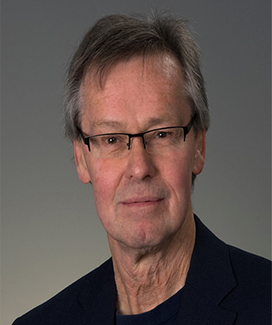 |
Donald H. SaklofskeHe joined the Psychology Department at the University of Western Ontario five years ago. Previously, he was a Full Professor in Applied Psychology and Associate Dean Research (Faculty of Education) at the University of Calgary. He is currently an Adjunct Professor at the University of Calgary as well as the Department of Educational Psychology, University of Saskatchewan, Visiting Professor in the School of Psychology at Beijing Normal University, and a Research Member in the International Laboratory for Research and Intervention in Cross-Cultural Positive Psychology, Prevention, and Sustainability (CroCPosPsychP&S), University of Florence, Italy. Editorships include: Personality and Individual Differences, Journal of Psychoeducational Assessment and until recently, the Canadian Journal of School Psychology. He is also Editor for the Human Exceptionality book series published by Springer. He has published 35 edited and authored books (4 in press) and more than 100 book chapters and 200 journal articles. Don is a Fellow of the Canadian Psychological Association, Association for Psychological Science, and Society for Personality and Social Psychology. He recently served on the Board of Directors and as President of the International Society for the Study of Individual Differences and the Board of the Canadian Psychological Association. He has a long standing interest in the martial arts and earned a black belt (sandan) in Shito-Ryu karate. |
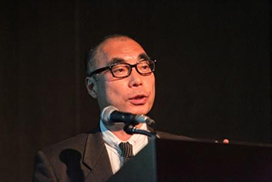
|
Akira TsudaAkira Tsuda has been a Kurume University professor since 1992. He continues teaching and studying efforts on indigenous and cultural psychological aspects of stress, health and well-being from the point of view of a biopsychosocial approach. He has been given numerous awards and honors as a researcher and service to the profession. He has been president of the meeting of Japanese Psychological Association 2018, was organized many conferences and annual meetings such as the Japanese Behavioral Society, Japanese Association of Health Promotion, Japanese Society of Stress Management etc., and has been given a dozen executive members of scientific committee in Japan. He has published more 200 professional publications and 50 book chapter papers. His latest passion is helping to create effective stress management intervention program for space exploration innovation. |
| INVITED KEYNOTE SPEAKERS | |
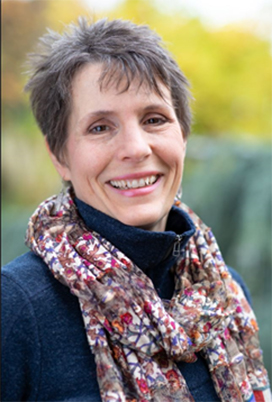 |
Lynette H. BikosLynette H. Bikos, PhD, ABPP, engages in research that falls at the intersections of vocational, international, and sustainable psychology. She is particularly interested in understanding how individuals respond to change -- plotting longitudinal growth trajectories examining the simultaneous effects of individual and contextual factors. Significant research projects have explored global learning outcomes in returnees from study abroad, first year adaptation of expatriate spouses, and career development in response to a calling-infused career intervention. Lynette joined the Department of Clinical Psychology at Seattle Pacific University in 2005. She has served as Associate Dean in the School of Psychology, Family, and Community since 2013. As Professor and Director of Research, she teaches statistics, research methods, and psychometrics courses to students enrolled in the Clinical (APA Accredited) and Industrial/Organizational PhD programs. She presently serves on the editorial boards of the Journal of Vocational Development, Career Development Quarterly, and International Perspectives in Psychology: Research, Practice, Consultation; and has previously served on the Journal of Counseling Psychology and Journal of Career Development editorial boards. Lynette is board certified in Counseling Psychology and is a Fellow in the Western Psychological Association. She is currently holding a 3-year term as Vice President for Engagement in APA’s Division 52/International Psychology. |
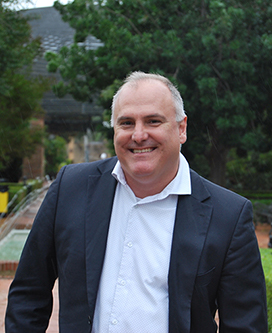 |
Natalio ExtremeraNatalio Extremera is Professor of Work and Organizational Psychology of the Faculty of Psychology at University of Málaga where he received his Ph.D in Psychology about the predictive validity of ability emotional intelligence in different applied setting. He joined University of Málaga in 2005. HE served as Vicedean of External Practices from 2016-2020. His research interests are focused on the assessment of emotional intelligence, and its influence on personal well-being and quality of working life, with an emphasis on occupational stress and work engagement and the role of emotional intelligence in work attitudes in teaching professionals. Co-author of Spanish validation of Emotional Intelligence Test (MSCEIT), He has an extensive publication list in the organisational and work psychology area. He teaches several courses in the area of Organizational Behaviour, Work and Organisational Psychology and Occupational Health and teaches subjects in different Spanish Official Master programs. He is also member of the Teaching Committee of the Ph.D. program in Psychology, University of Málaga. She has been in charge of several research projects funded by the Spanish Ministry of Education and Science, and regional Spanish institutions. He has more than fifty academic publication in journals such as Personality and Individual Differences, Social Indicators Research, Health and Quality of Life Outcomes, International Journal of Selection and Assessment, Emotion Review, Journal of Happiness Studies, Frontiers in Psychology, Journal of Positive Psychology, etc. |
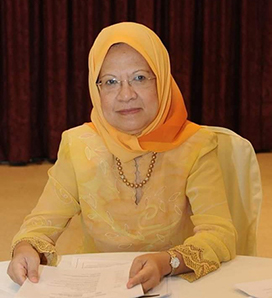 |
Rosnah IsmailDr. Rosnah Ismail is a Professor of Psychology, University of Cyberjaya, Malaysia (UoC), and also an Adjunct Professor of Psychology at the Faculty of Psychology and Education, Universiti Malaysia Sabah (UMS), Malaysia 2017-2019. She was a former Deputy Vice-Chancellor (Research and Innovation), UMS. She received her BSc. Degree in Food & Nutrition from Louisiana State University, USA and BSc. In Health Sciences in San Jose State University, California, USA; MA degree in Guidance and Counselling from the University of Durham, United Kingdom and PhD. at the UMS. Her areas of research interest include cross-cultural family psychology, quality of life and health well-being. Research on quality of life and health well-being lead her to examine how human thoughts, emotions and actions in local, cultural and global context promote sustainable development ideas for finding creative solutions and innovative research. She has authored and edited around 120 book chapters, books, monographs, and research articles published in national and international journals in psychology, education, social sciences, medical, and linguistics in the past 30 years. Prof. Rosnah is currently a Life Member of the Malaysian Psychological Association (PSIMA), was a Board Member of the Association of Psychological and Educational Counselors of Asia-Pacific (APECA), was a Member-At-Large of Asian Association of Social Psychology (AASP), and Past President of Alumni Association of UMS. Her current research is on “Psychometric Properties of the Human Capital Sustainability Leadership Scale (HCSLS) for Malaysian Employees: Factor Structure, Reliability and Validity” funded by the Ministry of Higher Education, Malaysia and University of Cyberjaya. |
 |
Satoko KimparaDr. Kimpara graduated from Yokohama National University, Japan, received her master’s in counseling psychology & clinical psychology from Oregon State University, Palo Alto University (PAU) and received her doctorate in clinical psychology from PAU. She trained at the Shyness Clinic supported by Palo Alto University and Stanford University, and completed her internship at University of North Carolina, Chapel Hill, Counseling Wellness Services and her Postdoctoral Fellowship at Asian Americans for Community Involvement (AACI), Adolescent Alcohol & Drug Program in San Jose, California. Dr. Kimpara is a licensed psychologist (CA) and travels widely as she develops training and research programs worldwide. She is from Japan and had been on the full-time faculty of Miyazaki International College. She has been a researcher and clinician at several behavioral health clinics that specialize in treating minority populations in Northern California and is currently employed as a supervisor and research scientist at Palo Alto University. She has worked widely both with the Japanese Association of Health Psychology and Division 52 (International Psychology) of American Psychological Association (APA) to develop intercultural awareness, transcultural clinical psychology training programs, and to develop international research programs that foster culture-sensitive interventions. In 2018, she was a recipient of Presidential Citation for leadership from Div 52 of APA. She has published widely on patient-treatment fit and matching and is skilled in the Systematic Treatment Selection (STS) approach to enhancing and optimizing psychotherapy. Her research interests include the STS cross-cultural studies, which is currently in the cross-cultural validation phase in several Asian countries. Since 2013, she has been a STS clinical training director to supervise practicum experiences to second-year doctoral level psychology students as well as advanced training for third and fourth-year students. The clinics serve culturally diverse clients from the community who present with a wide spectrum of clinical problems ranging from adjustment disorders to serious mental illnesses including bipolar disorder and schizophrenia. Web Resources for STS Continuing Education: STS – listed as an efficacious intervention on the APA Division 12 (Clinical Psychology) https://www.div12.org/treatment/systematic-treatment-selection/ STS/Innferlife cloud-based assessment- identifies 22 psychosocial problems, 6-10 STS client factors, and provides tracking graphs, narrative reports, and self-help resources STS Online Training Programs (approved as APA Continuing Education programs) |
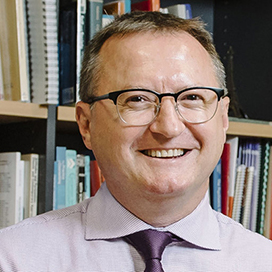 |
Peter McIlveenProfessor Peter McIlveen PhD is Research Director of ACCELL, the Australian Collaboratory for Career, Employability, & Learning for Living, based at the University of Southern Queensland. He is a member of the Australian Psychological Society, a Fellow of the Career Development Association of Australia, and an International Fellow of the National Institute for Career Education and Counselling (UK). He serves on the editorial boards of Journal of Vocational Behavior, Journal of Career Assessment, Career Development Quarterly, and International Journal of Educational & Vocational Guidance. His research is focused on career and work satisfaction and wellbeing. |
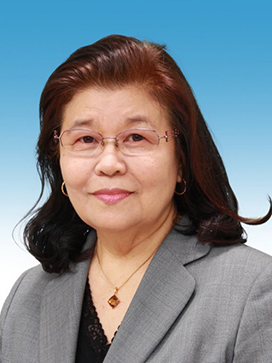 |
Kyoko NoguchiKyoko Noguchi is Professor of Health Psychology at Bunka Gakuen University, Tokyo, Japan. Since the rise of Health Psychology in North America and Europe, she has contributed greatly to develop this field in Japan and Asian countries. Currently she is Past President of Asian Society of Health Psychology. Toward new development in health psychology, she is trying to utilize practical elements of the related disciplines such as, social work, counseling, health education, public health, and business from her educational background, How to change lifestyle of clients suffering from stressful events or related diseases is often urged to change their behaviors, and it is a very important and difficult issue. She tries to combine Rational Emotive Behavior Therapy and Re-decision Therapy in Transactional Analysis, add Autogenic Training for behavior modification in lifestyle. Her social activities reflect her research field & theme and she successively held various posts: Director of The National Association of Juvenile Guidance Counselors, Director of Japan Health and Culture Promotion Association, Committee member of Community Safety Bureau National Police Agency, Committee member of Astronaut’s Psychological Evaluation for Selection and Psychological Working Group, in Japan. She has published over 70 scientific papers and books, chapters on the applications of cognitive, emotional, and behavioral interventions and related to psychosomatic diseases. Since 1990, the positive use of stress coping and personality in behavior change has become her main focus of her research and writings. Recently, she is interested in the power of Fashion as a catalyst for changing behavior in terms of sustainability. |
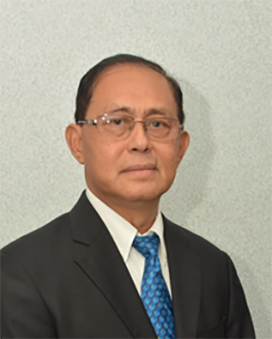
|
Ridzwan Abdul RahmanAcademic qualifications: Diploma of Agriculture, University of Agriculture (UPM), Malaysia (1974); Bachelor of Forestry, Louisiana State University, U.S.A (1977); Master of Science in Marine Biology, San Jose State University, California, U.S.A (1980); and PhD in Marine Biology, University of Newcastle upon Tyne, U.K. (1993). Ridzwan Abdul Rahman began his academic career as marine biology lecturer at the Faculty of Fisheries and Marine Science, UPM, Malaysia in 1981. Later in the same year he was appointed as Head, Marine Science and Fishing Technology Department at the Faculty’s newly established Fisheries and Marine Science Station in Terengganu. In 1984, he became the Deputy Dean of the Faculty and soon after was also appointed the UPM-Coordinator of Japanese International Cooperation Agency (JICA) technical assistance program on capacity building of the Faculty which involved teaching, staff training and physical infrastructural development, In 1985, he was also appointed as National Coordinator of ASEAN-Australia Marine Science Program on Coastal Living Resources; a program funded by the Government of Australia meant for capacity building in coastal marine resources survey and determining their status. In 1988, he was awarded a scholarship from the Malaysian Government to pursue PhD at University of Newcastle upon Tyne, UK. He completed his PhD in 1993 and returned to serve the Faculty as Senior Lecturer and resumed the role of Coordinator of the ASEAN-Australia program. In 1995, he accepted an invitation to join the new Universiti Malaysia Sabah (UMS) in Kota Kinabalu, Sabah and he was appointed Associate Professor and Head, Borneo Marine Research Unit. In 2000, after fulfilling the criteria and requirements set by the Ministry of Education, Borneo Marine Research Unit was uplifted in status and named Borneo Marine Research Institute and Ridzwan was appointed its first Director. Besides managing and administering the day-to-day operation of the Institute, he was also actively involved in teaching, supervision, research, publication, attending and presenting research findings at national and international conferences, workshops, meetings as well as establishing networks and partnership with other research organizations, both nationally and internationally. Ridzwan earned his Professorship in 2001. During his career, he led several research teams and expeditions involving national and foreign scientists and institutions. He has also served as advisor to several government organizations. Upon retirement in 2011, he was invited to Universiti Malaysia Perlis to serve as Coordinator of Aquaculture Research at the Institute of Sustainable Agrotechnogy. Currently, he is Visiting Professor at the Aquaculture Research Institute, Kindai University, Japan. |
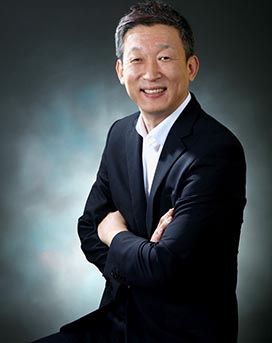
|
Kyung-Hyun SuhKyung-Hyun Suh, PhD, is interested in psychology factors, which keeps people healthy and happy for a long time in an aging society. He has been studying stress and well-being; life-threatening behaviors such as substance or behavior addictions, violence or psychological assaults in intimate relationships; psychological factors related to practicing health behavior; factors related to well-being in senescence; and other factors related to subjective well-being or happiness. Many of his studies were conducted by government research funds (e.g. National Research Foundation of Korea), and more than 160 articles published. He joined Sahmyook University as a professor in 2001. He served as Dean of Research and Industry Cooperation of this school from 2016–2019, and as President of Korean Health Psychological Association 2016–2017, as Vice president of Asian Society of Health Psychology from 2016–2019. Now, He is serving as President of Korean Addiction Counseling Association, Vice president of Korean Psychological Association of Culture and Social Issues, Vice president of Korean Society of Stress Medicine, Vice president of Korean Society of Alcohol Science & Health behavior, Chairperson of Commitee for Public Polocy in Korean Psychologial Association, and Chief Editor of Korean Journal of Health Psychology. |
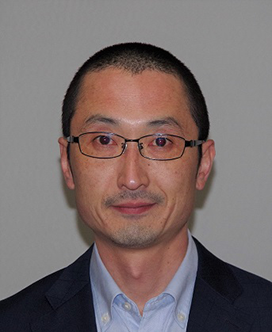 |
Yoshiyuki TanakaYoshiyuki Tanaka is an Associate Professor in the department of Psychology at Kyoto Tachibana University. His address health psychology and clinical psychology. He is interested in the power of positive side of humanity, and his research focuses on the subjective well-being, stress, health, and those relationships. His expertise includes the stress-management intervention that depend on ones' respective well-being. He has been recently studying about the difference and similarity of aspects of and a role of subjective well-being between Westerners and Japanese (Easterners). He has been supported by JSPS KAKENHI (the Grant-in-Aid for Scientific Research by Japan Society for the Promotion of Science), and several Grants for research from companies. He joined the Kyoto Tachibana University in 2012. He has delivered more than 50 publications and 100 presentations at national and international conferences. He is currently a member of the board of directors/councilors of Japanese Psychological Association, Japanese Association of Health Psychology, Japanese Society of Stress Management, Japanese Association of Stress Science, Japanese Society of Behavioral Medicine, and so on. He served as Chief Secretariat of Japanese Association of Behavioral Science from 2012-2016, as vice-chairperson of the Committee for International Relations (2015-present) and the Committee for Journal Edition (2019-present) at Japanese Association of Health Psychology. |
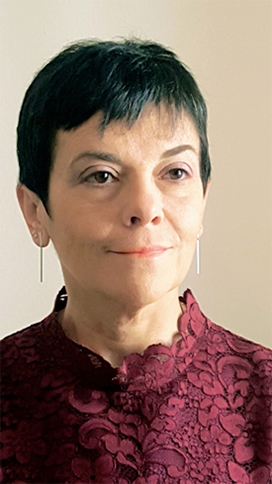
|
Gabriela Topa CantisanoGabriela Topa is an associate professor of social and organizational psychology at the National Distance Education University (UNED). She has been recently positively evaluated for the position of Full Professor. She obtained her Ph.D. in 2004. Her doctoral dissertation focused on Psychological contract breach among Spanish professional soldiers. Her current research is devoted to retirement, bridge employment, and financial planning for retirement. She has developed both empirical and meta-analytical research. Her work has been published in Journal of Vocational Behavior, Journal of Neuroscience, Psychology and Economics, European Journal of Work and Organizational Psychology, Journal of Aging and Health, Personality and Individual Differences, PlosONE, and Voluntas, among others. She is Associate Editor of Frontiers in Psychology, Organizational Section, BMC Public Health, Cogent Psychology and Psychology Research and Applications. Her recent research activities are mainly focused on the new research area of Psychology of sustainability and sustainable development. Outcomes of these activities are they recent publications in Sustainability, Internationa Journal of Environmental Research and Public Health, among other Journals. |
PRESIDENTS OF THE SCIENTIFIC AWARDS COMMITTEE
Maureen E. Kenny – Boston College (USA)
SCIENTIFIC COMMITTEE
Dinah Alexander, University of the Witwatersrand (South Africa); Frederik Anseel, King’s College London (UK); Giulio Arcangeli, University of Florence (Florence); Caroline Arnoux-Nicolas, University of Paris Nanterre (France); Neal Ashkanasy, University of Queensland (Australia); Kelsey L. Autin, University of Wisconsin-Milwaukee (USA); Samia Ben Youssef Mnif University of Tunis (Tunisia); Jean-Luc Bernaud, INETOP-CNAM (France); Pablo Fernandez-Berrocal, University of Malaga (Spain); Lynette H. Bikos, Seattle Pacific University (USA); David Blustein, Boston College (USA); Laura Borgogni, Sapienza University of Rome (Italy); Richard E. Boyatzis, Case Western Reserve University (USA); Stuart Carr, Massey University (New Zealand); Fanny Cheung, The Chinese University of Hong Kong (China); Rita Chiesa, University of Bologna (Italy); Saths Cooper, University of Pretoria (South Africa); Claudio Cortese, University of Turin (Italy); Serena Cubico, University of Verona (Italy); Sílvia da Silva, ISCTE-Instituto Universitário de Lisboa (Portugal); Jesus Enrique De La Fuente, University of Almería (Spain); Marco Depolo, University of Bologna (Italy); Matthew A. Diemer, University of Michigan (USA); Annamaria Di Fabio, University of Florence (Italy); Santo Di Nuovo, University of Catania (Italy); Elisabeth Doutre, Université Grenoble Alpes (France); Emre Er, Yıldız Teknik University (Turkey); Natalio Extremera, University of Málaga (Spain); Geneviève Fournier, Laval University, Québec (Canada); Márta Fülöp, Eötvös Loránd University (Budapest); Cristina García-Ael, UNED, Madrid (Spain); Itamar Gati, The Hebrew University of Jerusalem (Israel); Enrichetta Giannetti, University of Florence (Italy); Gabriele Giorgi, European University of Rome (Italy); Alessio Gori, University of Florence (Italy); Francisco Gracia, University of Valencia (Spain); Guendalina Graffigna, Catholic University of Sacred Heart (Italy); Samuel Greiff, Université du Luxembourg (Luxembourg); Dina Guglielmi, University of Bologna (Italy); Jean Guichard, CNAM-INETOP (France); Jarrod Haar, Auckland University of Technology (New Zealand); Buxin Han, Chinese Academy Sciences, Beijing (China); Christian Heslon, UCO, Angers (France); Annemarie Hiemstra, Erasmus University Rotterdam (the Netherlands); Ronald H. Humphrey, Lancaster University (UK); Dragos Iliescu, University of Bucharest (Romania); Rosnah Ismail, University of Cyberjaya (Malaysia); Konstantinos Kafetsios, University of Crete (Greece); Dasho Karma Ura, Centre for Bhutan Studies and GNH Research (Bhutan); Semih Kaynak, Gazi, University (Turkey); Ümre Kaynak, Gazi, University (Turkey); Maureen E. Kenny, Boston College (USA); Sabire Kılıç, Gazi, University (Turkey); Uichol Kim, Inha University (Korea); Satoko Kimpara, Palo Alto University, California (USA), Barbara Kozusznik, University of Silesia (Poland); Saadi Lahlou, London School of Economics and Political Science, London (UK); Hao Le Van, Vietnam Academy of Social Sciences (Vietnam); Claire Leitch, Lancaster University (UK); Laura Lorente Prieto, University of Valencia (Spain); Edoardo Lozza, Catholic University of Sacred Heart (Italy); Marco Giovanni Mariani, University of Bologna (Italy); Jacobus G. Maree, University of Pretoria (South Africa); Inés Martínez-Corts, University of Seville (Spain); Peter McIlveen, University of Southern Queensland (Australia); Francisco J. Medina, University of Seville (Spain); Yomna Morsy, Abu Dhabi University, United Arab Emirates; Elias Mpofu, University of Sydney (Australia); Nicola Mucci, University of Florence (Florence); Lourdes Munduate, University of Seville (Spain); Yolanda Navarro Abal, University of Huelva (Spain); Robert Ngueutsa, Université De Franche Comté (France); Kyoko Noguchi, Tohoku Bunka Gakuen University, Japan; Kayi Ntinda, University of Swaziland (Swaziland); Yus Nugraha, Universitas Padjadjaran, Bandung (Indonesia); Berkay Özünlü, Sinop University (Turkey); José-Maria Peiró, University of Valencia (Spain); Vijay Pereira, University of Wollongong, Dubai (United Arab Emirates); Harsha Perera, University of Nevada (USA); María del Carmen Pérez-Fuentes, University of Almería (Spain); Juan Carlos Pérez-González, UNED, Madrid (Spain); Renato Pisanti, University Niccolò Cusano (Italy); René Proyer, University of HalleWittenberg (Germany); José Ramos, University of Valencia (Spain); Lourdes Rey, University of Málaga (Spain); Marcelo Ribeiro, University of São Paulo (Brazil); Christine Roland-Levy, University of Reims Champagne-Ardenne (France); Marc A. Rosen, University of Ontario Institute of Technology (Canada); Fatih Şahin, Gazi University (Turkey); Donald H. Saklofske, University of Western Ontario (Canada); Samuel Same Kolle, University of Douala (Cameroon); Philippe Sarnin, Université Lumière Lyon 2 (France); Giuseppe Scaratti, Catholic University of Sacred Heart (Italy); Ilaria Setti, University of Pavia (Italy); Emre Sönmez, Gazi University (Turkey); Laurent Sovet, Université Paris Descartes (France); Anwarul Hasan Sufi, University of Rajshahi (Bangladesh); Hana Suzuki, Ritsumeikan University (Japan); Yoshiyuki Tanaka, Kyoto Tachibana University (Japan); Simon Taukeni, University of Namibia (South Africa); Gabriela Topa, National Distance Education University, UNED (Spain); Nuria Tordera, University of Valencia (Spain); Akira Tsuda, Kurume University (Japan); Ana Maria Tur Porcar, University of Valencia (Spain); Alpana Vaidya, Symbiosis College, Pune (India); Carmelo Vazquez, Complutense University of Madrid (Spain); Greg Yan, Beijing Normal University (China); Kübra Yenel, Gazi University (Turkey); Kwartarini Yuniarti, Universitas Gadjah Mada, Yogyakarta (Indonesia).
OVERVIEW. The International Conference Psychology of Sustainability and Sustainable Development is a two-day interdisciplinary event organized by the University of Florence (Italy) and represents the founding conference. This event will be a biennial meeting. The main aim is to share contributions focusing on research, assessment, and interventions relative to the new research area of the Psychology of Sustainability and Sustainable Development (Di Fabio, 2017a, 2017b; Di Fabio and Rosen, 2018). This new research area contributes to sustainability issues by introducing a psychological perspective and promoting the trans-disciplinary framework at the basis of Sustainability Science. Answering to sustainability issues introducing psychological contributions means both enhancing the trans-disciplinary perspective and enlarging the concept of sustainability This innovative perspective also overcomes a perspective exclusively based on the ecological and socio-economic environment, seeking to improve the well-being and quality of life of the individual/s, of the environment/s, of the individual/s in the environment/s, considering different kind of environments (natural, personal, social, organizational, community, digital, cross-cultural, … global environment).
TOPICS. This first International Conference on Psychology of Sustainability and Sustainable Development represents a productive forum about Psychology of Sustainability and Sustainable Development. These contributions will reflect three thematic areas:
1) research and interventions focused on different environments from the natural environment, the personal environment, the social environment, the organizational environment, the inter-organizational environment, to many other kind of environments…, included the digital and virtual environments, cross-cultural environments until the globalized environment;
2) research and interventions focused on both healthy and safe environments, and the promotion of well-being and the quality of life of individual/s within and in different environment/s;
3) research and interventions in a preventative perspective for promoting sustainability and sustainable development using psychological lens also in a primary prevention framework and in strengths-based preventative perspectives.
The Conference enriches the framework of the Sustainability Science in a trans-disciplinary perspective introducing the Psychology of Sustainability and Sustainable Development also in a cross-cultural perspective.
CALL FOR ABSTRACTS. The program committee invites you to submit proposals for symposia, paper sessions, and posters. We welcome international contributions from scholars and professionals involving research and practice oriented approaches and perspectives.
Papers will be scheduled for 15 minutes. Poster sessions will be 1.5 hours and intended to promote discussion and exchange of information. Symposia will include 4-5 papers each of 15 minutes. Submission forms are included in the “call for papers”.
SUBMISSION OF ABSTRACTS. An abstract (to a maximum of 150 words) should be submitted by the 28th of February 2020 to adifabio(AT)psico.unifi.it (please, specify the title “Submission First International Conference: Psychology of Sustainability and Sustainable Development”). Each contribution will be peer evaluated, according to the relevance of the Conference’s topics, significance of the contribution, and originality. Participants will be notified regarding the acceptance of their paper by the 9th of March 2020.
REGISTRATION. The International Conference Psychology of Sustainability and Sustainable Development is the first of several planned events in the future in Florence (Italy). The aim of this first conference is to assemble researchers and professionals/practitioners with a shared interest in Psychology of Sustainability and Sustainable Development, also in a cross-cultural perspective, in order to establish a reoccurring international conference on this emerging topic.
ORGANIZING COMMITTEE
Responsible of the organizing committee: Annamaria Di Fabio, University of Florence (Italy).
Members of the organizing committee: Serena Cubico, University of Verona (Italy); Gabriele Giorgi, European University of Rome (Italy); Alessio Gori, University of Florence (Italy); Marco Giovanni Mariani, University of Bologna (Italy); Letizia Palazzeschi, University of Florence (Italy); Ilaria Setti, University of Pavia (Italy).
KEYNOTE SPEAKERS
Lynette H. Bikos, Seattle Pacific University (USA)
Annamaria Di Fabio – University of Florence (Italy)
Natalio Extremera, University of Malaga (Spain)
Jarrod Haar, Auckland University of Technology (New Zealand)
Rosnah Ismail, University of Cyberjaya (Malaysia)
Satoko Kimpara, Palo Alto University, California (USA)
Jose-Maria Peiró, University of Valencia (Spain)
Peter McIlveen, University of Southern Queensland (Australia)
Kyoko Noguchi, Tohoku Bunka Gakuen University (Japan)
Ridzwan Abdul Rahman, Kindai University, Japan (at Aquaculture Research Institute)
Marc A. Rosen, University of Ontario Institute of Technology (Canada)
Gabriela Topa Cantisano, UNED University (Spain)
SPECIAL PANEL SESSION
Marc A. Rosen, University of Ontario Institute of Technology (Canada)
Annamaria Di Fabio, University of Florence (Italy)
Buxin Han, Chinese Academy Sciences, Beijing (China)
Uichol Kim, Inha University (Korea)
Maureen E. Kenny, Boston College (USA)
Jose-Maria Peiró, University of Valencia (Spain)
Donald H. Saklofske, University of Western Ontario (Canada)
Anwarul Hasan Sufi, University of Rajshahi (Bangladesh)
Akira Tsuda, Kurume University (Japan)
PANEL ROUND TABLE (event open to citizenship)
COORDINATORS
Uichol Kim, Inha University (Korea)
Maureen E. Kenny, Boston College (USA)
Annamaria Di Fabio, University of Florence (Italy)
MORE INFORMATION. To receive more information, please, contact Annamaria Di Fabio (adifabio(AT)psico.unifi.it).
VENUE
The second international cross-cultural Conference Healthier societies fostering healthy organizations: A cross-cultural perspective will be held at the University of Florence on the August 26-27, 2020, in the city of Florence (Novoli Campus, Building D6, via delle Pandette 9).
Discover more about the University of Florence: http://www.unifi.it/index.php
REGISTRATION FEES
Type of registration
Early bird
(until 2nd April 2020): 100 €
Early bird emerging countries and university students of different degrees
(until 2nd April 2020): 50 €
Early bird for participants in all the three international conferences in Florence (24-29 August 2020)
(until 2nd April 2020): 200 €
Early bird emerging countries and university students of different degrees
for participants in all the three international conferences in Florence (24-29 August 2020)
(until 2nd April 2020): 100 €
Regular
(after 2nd April 2020): 150 €
Regular emerging countries and university students of different degrees
(after 2nd April 2020): 75 €
Regular for participants in all the three international conferences in Florence (24-29 August 2020)
(after 2nd April 2020): 300 €
Regular emerging countries and university students of different degrees
for participants in all the three international conferences in Florence (24-29 August 2020)
(after 2nd April 2020): 150 €
Social dinner: 70 €
IMPORTANT DATES:
- Submission deadline: 28 February 2020
- Notification of acceptance: 9 March 2020
- Early bird registration deadline to the conference: 2 April 2020
Ultimo aggiornamento
24.11.2020
